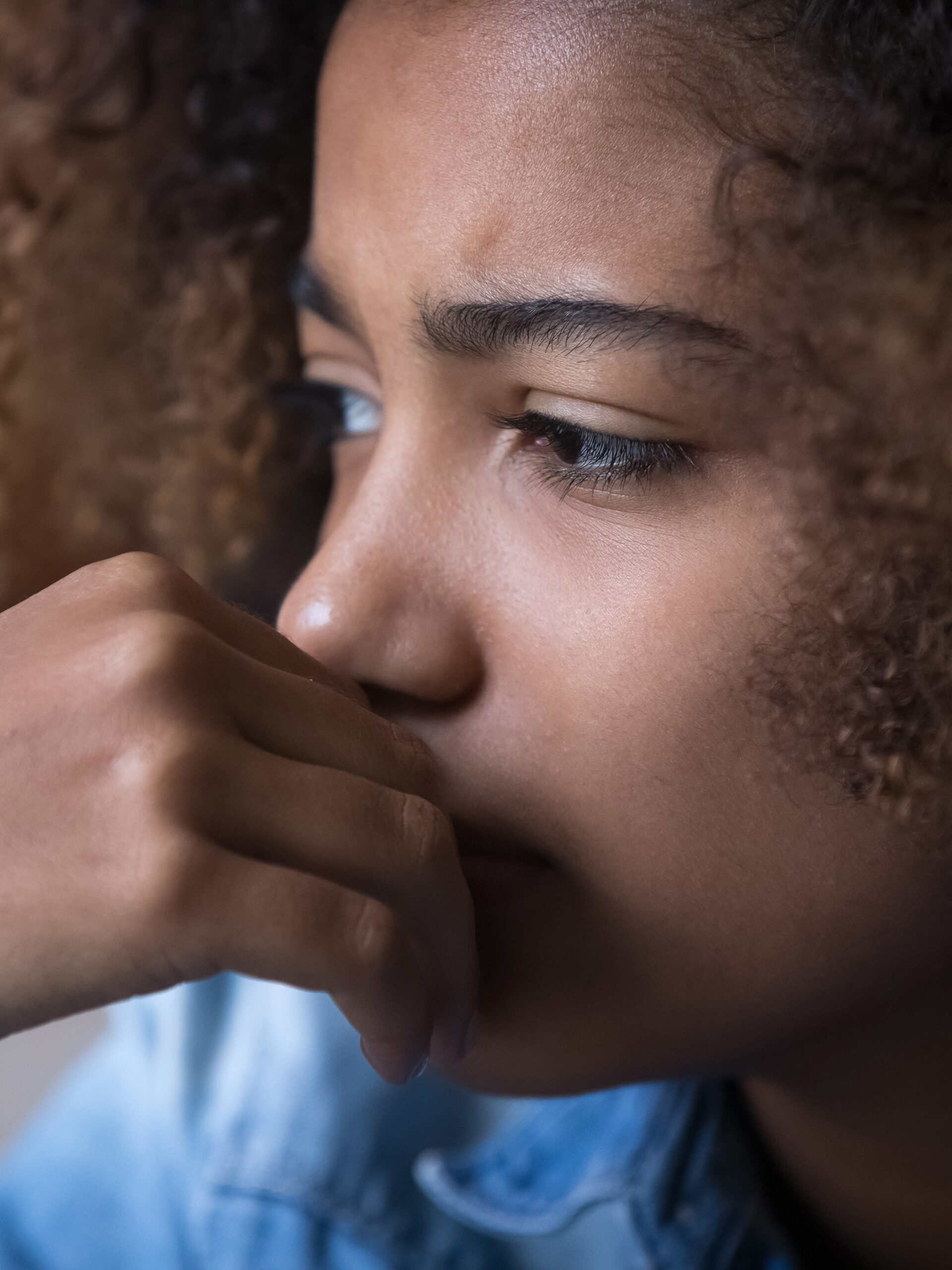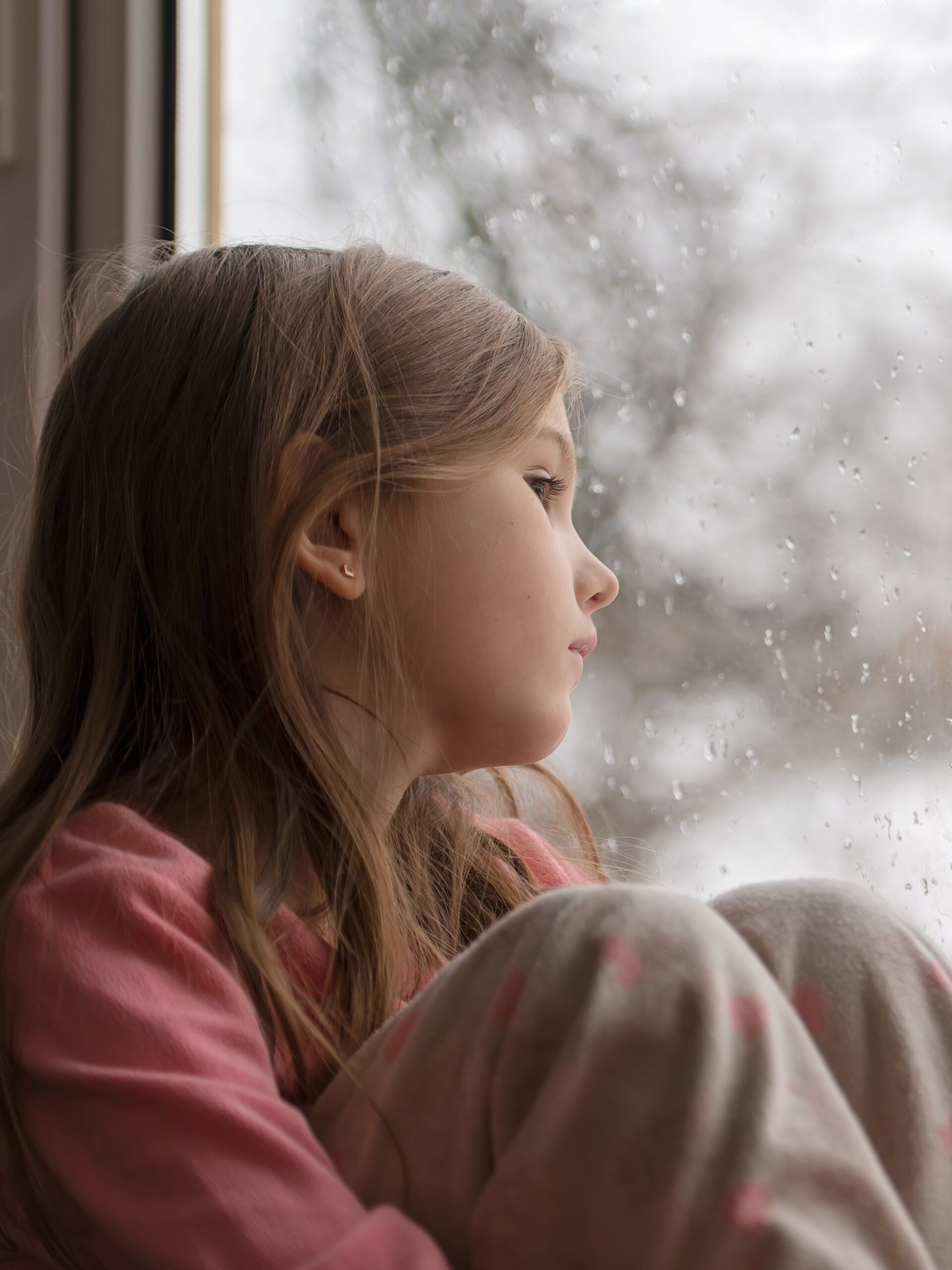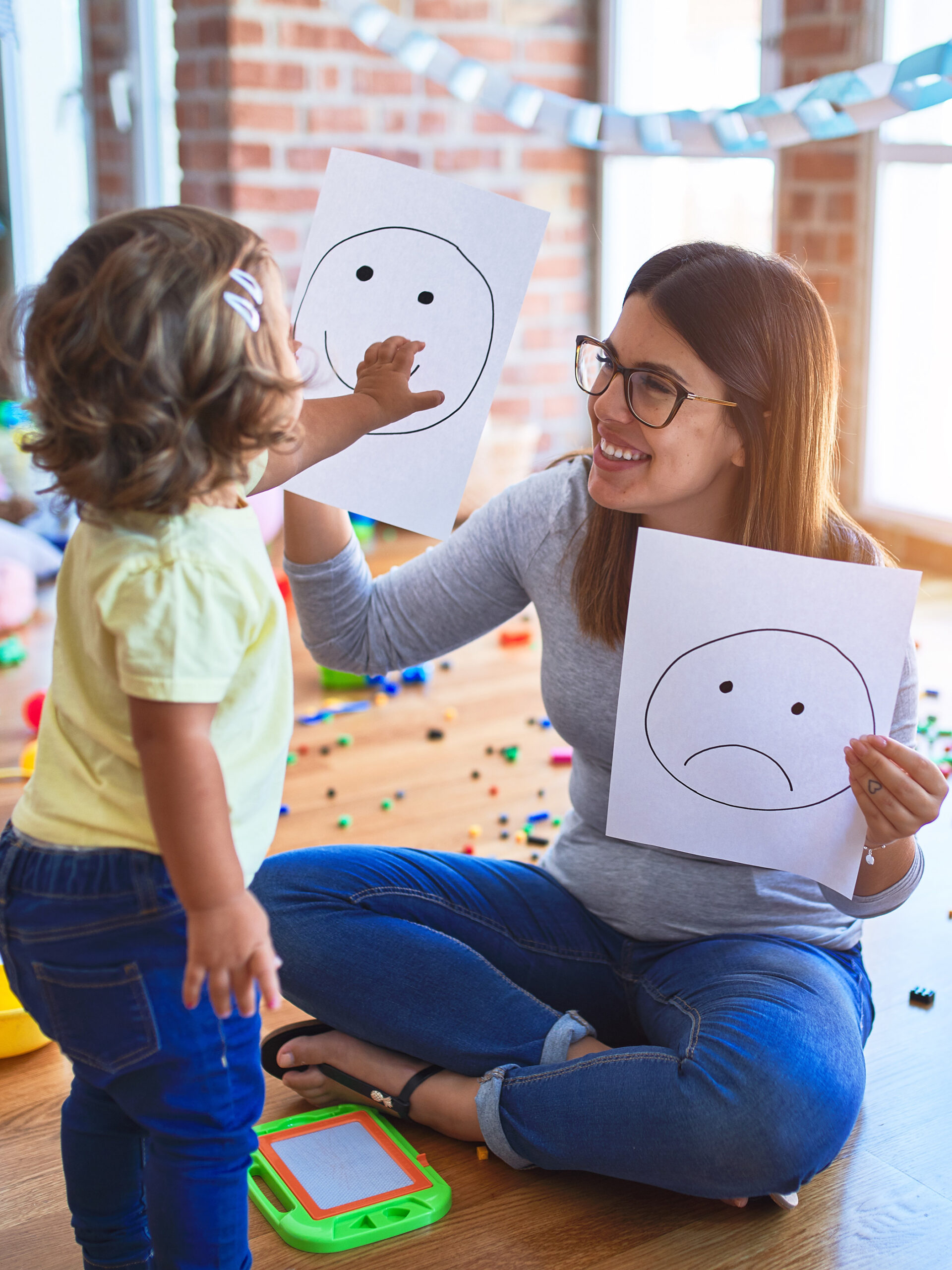MENTAL HEALTH GUIDE
Depression
Depression is a real, treatable medical condition. Depression is more than just a bad mood; it is a period of irritability, intense hopelessness, anger or frustration that can last for weeks, months or longer. These feelings can make it difficult for children and teens to function as they normally would, to get through the day or to find joy in things they usually enjoy. Some of the more troublesome symptoms of depression include self-harm and suicidal thoughts or feelings. Depression is also associated with a significantly elevated risk for behavior and eating disorders, substance use and anxiety.
Crisis Resources
If your child expresses thoughts of wanting to harm themselves or others, call 9-1-1 or visit the nearest emergency department.
988 Suicide and Crisis Lifeline:
Call 9-8-8
Text any message to 9-8-8
Chat online at 988lifeline.org/chat
Crisis Text Line:
Text “HOME” to 741741
Save for later
Download, print or share on social media.
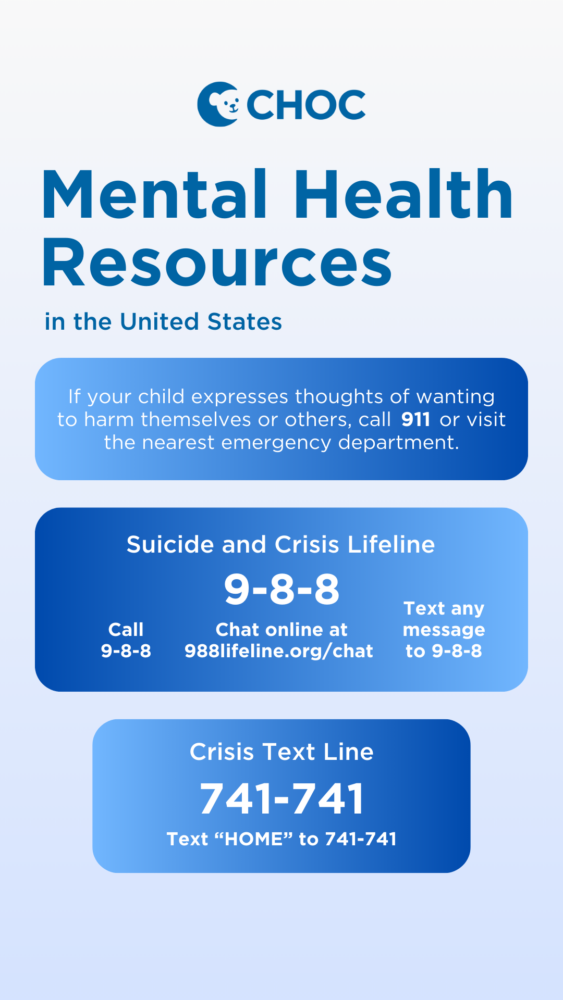
External resources
National Institute of Mental Health (NIMH)
www.nimh.nih.gov/
Learn more about CHOC’s pediatric mental health services
At CHOC, we specialize in providing a full spectrum of pediatric mental healthcare, including inpatient, intensive outpatient and outpatient program services.
Get 24/7 advice from CHOC
Depression Overview
According to the Center for Disease Control (CDC), approximately 1.9 million children ages 3-17 have been diagnosed with depression. Of the youth diagnosed with depression, approximately 60% do not receive any type of mental health treatment to address the condition.
What are some of the symptoms of depression?
- Feeling sad, empty or hopeless more often than not
- Feeling irritable
- Trouble falling asleep, trouble staying asleep or sleeping more than usual
- Feeling very tired or having little energy
- Feeling worthless or guilty
- Having trouble concentrating
- Thinking about dying or suicide
- Changes in appetite
- Changes in hygiene
- Having trouble taking care of day-to-day tasks
- Finding little joy in things that used to feel enjoyable
- Physical symptoms like stomach aches or headaches
What are some behaviors parents should look out for?
Symptoms of depression vary from child to child, so here are some behaviors parents can keep an eye out for, which may hint that your child is depressed or in need of mental healthcare.
- The child seems very irritable; keep in mind depression in young kids can look more irritable than sad or down.
- The child is spending a lot of time in their room and does not want to interact with family or friends
- The child has a significant decrease in energy level and is spending more time in bed/sleeping than usual
- The child is very “sensitive” and cries easily
- The child appears to get angry “out of nowhere”
- The child does not want to go to school
- Big changes to child’s appetite – suddenly eating significantly more or less
What’s the difference between natural adolescent behavior and depression?
Symptoms of depression may not be obvious, like a teen exhibiting sadness. It is common for teens to be overwhelmed easily during all of their developmental changes or to appear irritated and withdrawn from family because they’d rather be with their friends.
It’s important for parents, caregivers and educators to be able to spot the difference between natural teen behavior and depressive behavior.
According to the Diagnostic and Statistical Manual of Mental Health Disorders (DSM-5), clinically diagnosed depression may be called Major Depressive Disorder or Other Specified Depressive Disorder. The DSM-5 states that common symptoms of depression may include irritable mood, lack of motivation, inability to concentrate, fatigue, physical symptoms like stomach aches and headaches, social withdrawal, sadness and behavioral issues such as non-compliance and or defiance.
If your teen is not usually this way, and if there is a pattern of these symptoms popping up for more than two weeks, it may be a red flag that your teen may be experiencing a depressive episode.
Who experiences depression?
Up to 9% of youth experience at least one major depressive episode by age 14. Adolescents are even more likely to experience depression.
Up to 37% of college students exhibit/express experiencing depressive symptoms.
Girls experience depression at roughly twice the rate of boys.
Depression is the most common mental health condition among trans youth; 66.5% of trans teens experience depression.
 Print this section
Print this section
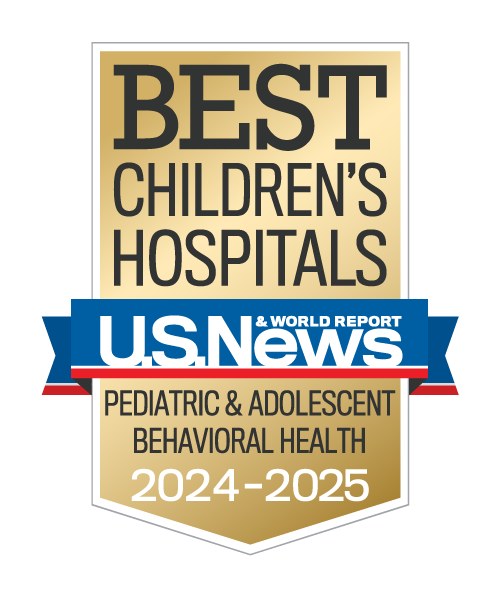
Learn more about CHOC’s Pediatric Mental Health Services
CHOC Hospital was named one of the nation’s best children’s hospitals by U.S. News & World Report in its 2024-25 Best Children’s Hospitals rankings and ranked in the behavioral health specialty.

Tips for parents and caregivers of children with depression
Watching a child deal with depression can be upsetting for parents. The good news is adults don’t need to feel powerless. If you are a parent who is concerned about your child or one of their friends, here are some tips about how to support them.
Show your love
Children need love, empathy and respect. Let them know you care and that their feelings are important. Be present, sit with them and reassure them that you understand how they feel.
Stick to a routine
Schedules and routines create a sense of structure and security and can help make tasks feel more approachable. Help create routines for your child too — even though they may not feel like doing activities.
Focus on positive communication
Track your ratio of negative to positive comments to your child. Your goal should be 1 negative to 5 positives.
Say this, not that
Although you may have the best of intentions, the words you use when talking to someone with depression may not express exactly what you mean. Here are some common statements to avoid and some tips on what to say instead.
Develop a positive environment
Create a positive atmosphere to help your child relax. Make a list of fun things to do together and follow through with them.
Take care of yourself
Find a support group, take an exercise class or hire a babysitter so you can get out. You also have to take care of yourself when taking care of your child.
Find treatment for your child
Your child may benefit from therapy/counseling and/or medication. Talk with their doctor to decide what will work best for your family.
Get help
If your child expresses thoughts about wanting to kill or hurt themselves or is making concerning statements, call 9-1-1 or bring your child to the nearest emergency department right away. These feelings/thoughts are an emergency. Never assume it is a joke or an exaggeration.
Assure your child
Let your child know you are going to do what it takes to help them to feel better and that therapy, activity and medications can help them. Remember that depression is treatable and that it can get better.
 Print this section
Print this section
Tips for kids and teens with depression
Depression can be overwhelming and can make you feel hopeless, but it is important to remember it is treatable. Ask a parent or trusted adult for support. The following tips can also help you cope.
If you are in immediate crisis or feel like hurting yourself or others, call (877) 7CRISIS or (800) 273-TALK, or text “HOME” to 741741. You can also call 9-1-1 or go to the nearest emergency department. Don’t wait to get help.
Try not to bottle up your feelings
Seek out a trusted friend or adult, such as your parent, to talk to about your feelings and what is on your mind. You don’t have to be alone in these feelings.
Understand that there is a name for what you are going through and that you are not alone
At least half of your classmates will experience symptoms of depression at some point in their lives, even if you can’t see it. If you feel alone, know that there are other people who have felt the same way you do and can help support you through these feelings.
Keep up with friends and activities
Even if you do not want to do things, you should still try to do them. Push yourself to try to do fun things, even if you have to go through the motions. Having a routine helps many people to cope with depression.
Do something that makes you feel proud.
Do your homework, finish a chore (such as cleaning your room) and take time to notice what a good job you did. Feel proud of your hard work. Set small goals like this to help keep that proud feeling going throughout the week.
Talk about your sadness
Sometimes when people feel sad, the things they think about are sad, too. If your best friend told you they were feeling really sad or had a problem, what would you say to support them? Try talking through your own sadness with a friend.
Talk about scary thoughts and feelings
Sometimes when kids feel upset, they think a lot about death or dying. If you notice yourself having scary thoughts such as “I want to die” or “I wish I wasn’t alive,” tell a trusted adult, such as your parent or guardian. Get help or call 9-1-1 right away if you feel like you might hurt yourself.
Focus on getting enough sleep
We are more likely to get upset or feel down if we don’t get enough rest. Try to make the hour before you go to bed peaceful and relaxing. Try to stay away from your phone and the TV, since the light tricks your brain into thinking it is daytime.
 Print this section
Print this sectionLearn more about depression symptoms and treatment
At CHOC, we specialize in providing a full continuum of pediatric mental healthcare, including inpatient, intensive outpatient and outpatient program services.
Depression recommended reading
 Print this section
Print this section
Related guides
Depression often occurs alongside other mental health conditions such as anxiety and eating disorders. For more information on other mental health conditions that can occur alongside depression, please visit our other mental health guides.
Additional Resources
Depression books
- Depressed Child: A Parent’s Guide for Rescuing Kids, Douglas A. Riley
- Help me, I’m sad: Recognizing, Treating and Preventing Childhood Depression and Adolescent Depression, David G. Fassler and Lynne S Dumas
- Raising Depression-Free Children: A Parent’s Guide to Prevention and Early Intervention Kathleen Panula Hockey
- The Childhood Depression Sourcebook, Jeffrey A. Miller
- Lonely, Sad & Angry: How to Help Your Unhappy Child, Barbara D. Ingersoll
The guidance on this page has been clinically reviewed by CHOC pediatric experts.
For more health and wellness resources from the pediatric experts at CHOC:
Sign up for the Kids Health newsletter.
The contents of this webpage, including text, graphics, audio files, and videos (“Materials”), are for your general information only. The Materials are not intended to substitute qualified professional or medical advice, diagnoses, or treatments. CHOC does not recommend or endorse any specific tests, physicians, products, procedures, or other information that may be mentioned on or linked to this webpage. Always call your physician or another qualified health provider if you have any questions or problems. If you think you may have a medical emergency, call your doctor, go to the nearest emergency department, or call 911.
For more health information for your family visit health.choc.org



